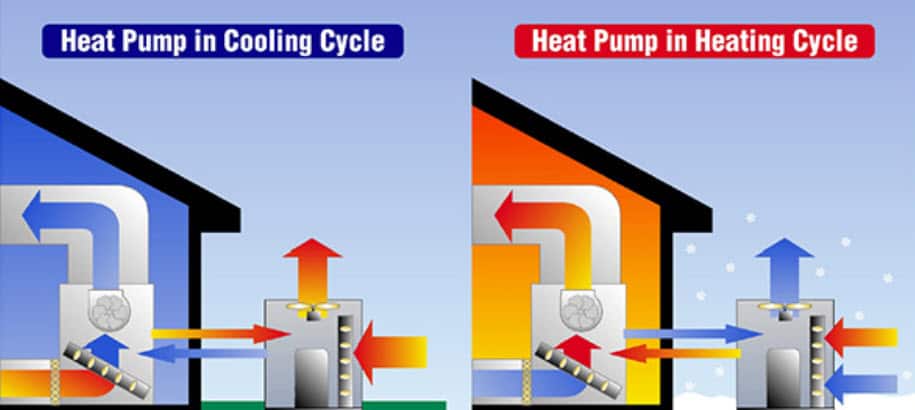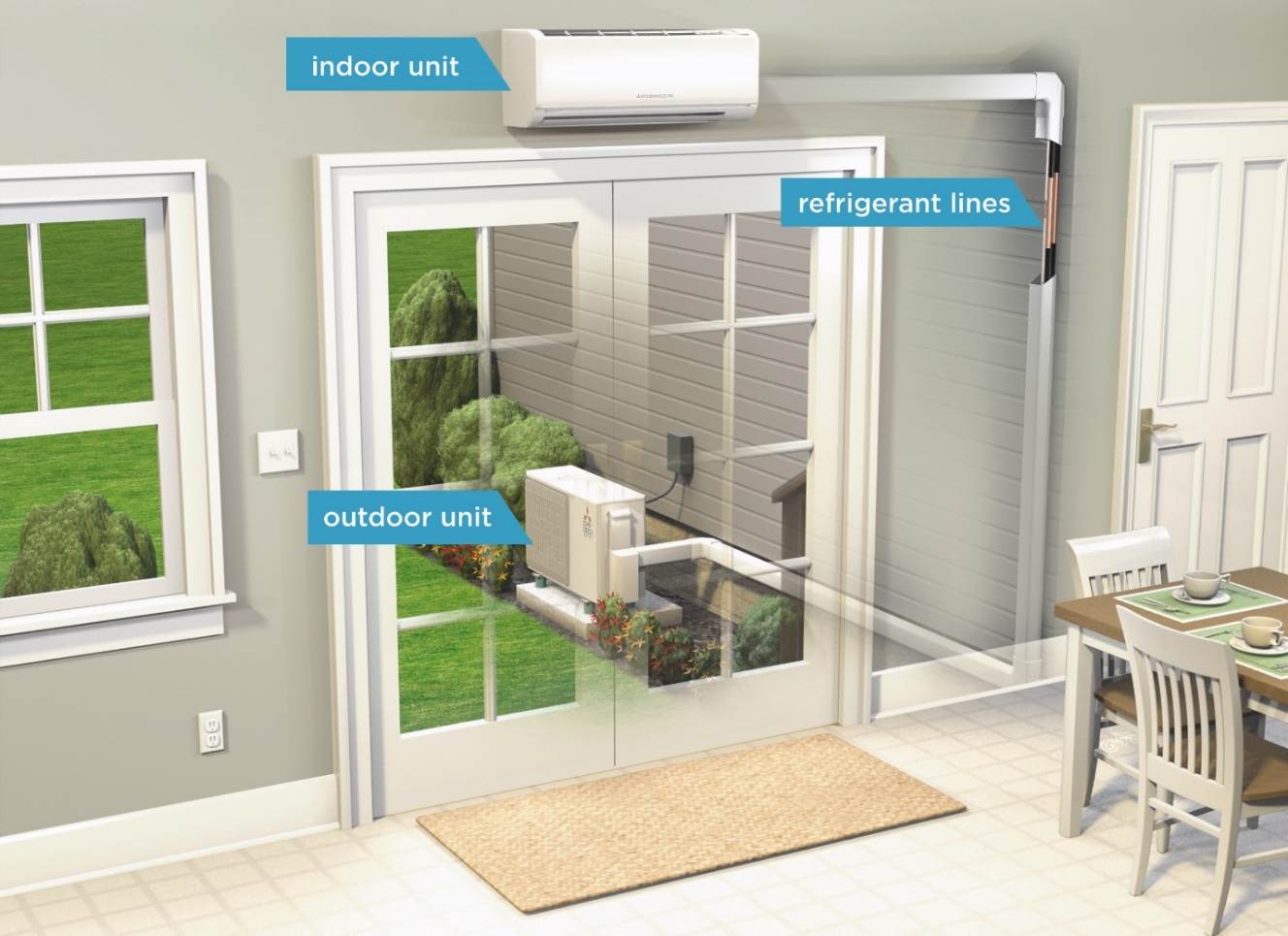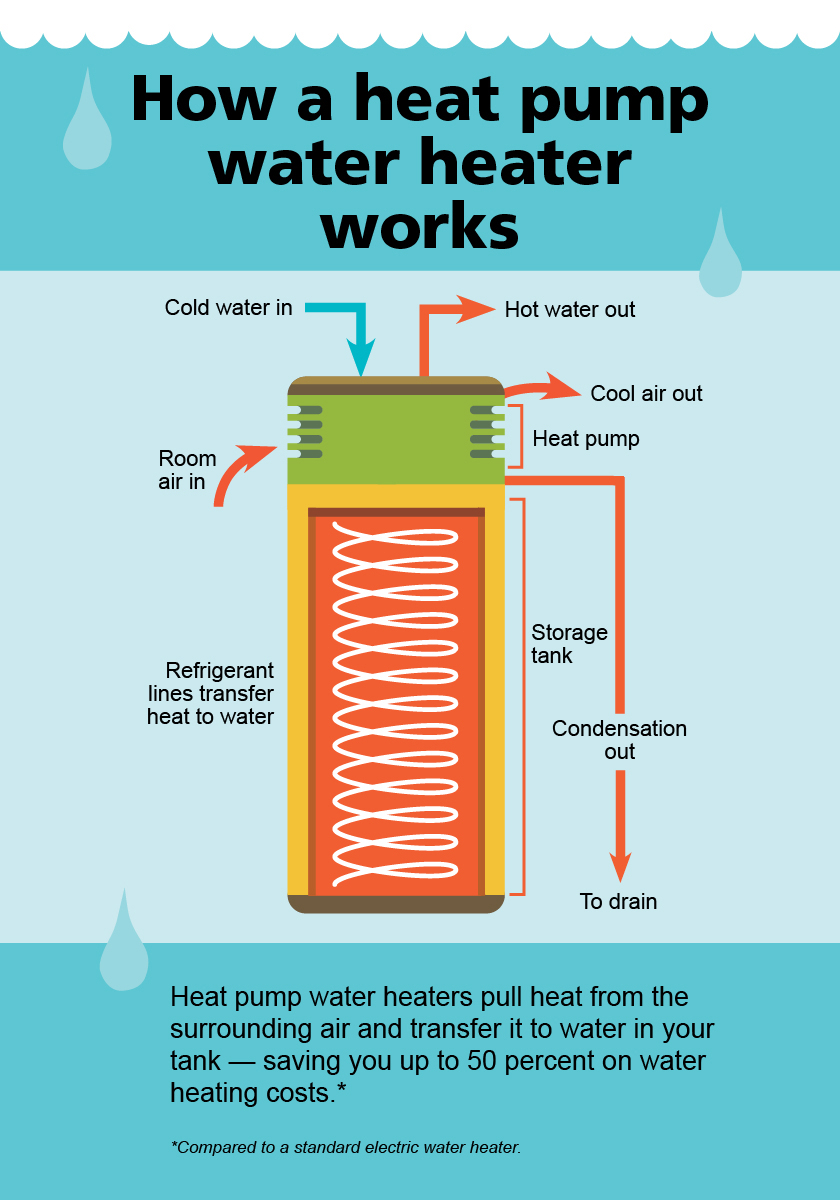
Heat Pumps
Heat pumps are available to both heat your house and your water. In both cases they operate like a refrigerator in reverse. They take the heat that is in the air outdoors, compresses it and warm either your house or your water.
Fossil fuel furnaces typically need to be replaced every 10-15 years. You don’t want to wait for it to fail and have to make a hasty decision. In fact, your furnace becomes less efficient and more costly to run as it ages so you may want to retire it before it breaks down. If you want to get the benefit of system that provides more comfort with a steady temperature through the day, costs less to operate and has the lowest impact on the environment, replace your old fossil fuel furnace with a heat pump.
So now is the time to do a little homework to understand what the choices are, what financial incentives exist and then contact one of our recommended dealers at Electrify Now and Electrify Oregon to find out which options are best for you.
Heating and Cooling Your Home
Today’s heat pumps can extract outdoor heat when the temperature is as low as -5° and are backed up with resistance coils that can provide heat in the rare case the outdoor temperature gets colder. What is great is that when the weather gets really hot you flip a switch and now your heat pump becomes an air conditioner.
There are central heat pumps with a compressor outside that use an indoor air fan to move the heated or cooled air through your current duct system as shown here:

There are also ductless mini-split heat pumps that work well in smaller homes as shown here.

A good place to help you understand which type of heat pump makes sense for you is to start with information provided by Portland General Electric at their High Efficiency Heat Pump page.
PGE’s offers free consultation with their PGE Energy Experts who can
-
-
- Help you decide which heat pump makes sense for your home
- Explain incentives and tax credits
- Answer questions when you’re reviewing bids
- And, provide post-installation advice on your Oregon rights if problems arise.
-
They can be reached either by filling out this form or calling them at 503-612-3500 and asking to speak with a PGE Energy Expert.
For a list of contractors who are “pro-electric” check out Electrify Now‘s and Electrify Oregon‘s recommendations. Be sure to mention where you got the referral to get any advertised discounts. More information is available at Electrify Oregon’s Electrification 101 lessons on home heating and cooling.
Heating Your Water
Water heaters typically last 8-10 years and can be replaced with a super-efficient heat pump water heater. Since heating water is the second greatest use of energy in your home it makes sense to consider using a heat pump water heater, also called a hybrid water heater, for both cost savings and to reduce your impact on the environment. Check out Electrify Oregon’s Electrification 101 lessons on heat pump water heaters for more information.

Additional Information about Heat Pumps
To learn more about heat pumps both to heat your home and your water, check out our list of Frequently Asked Questions and other resources on our Electrify LO Resources web page.
Heat pump technology and financial incentives are getting better all of the time. Electrify Now has developed a list of vetted local vendors and installers that can help you decide what is best for your home, what it will cost and what financial incentives are available: